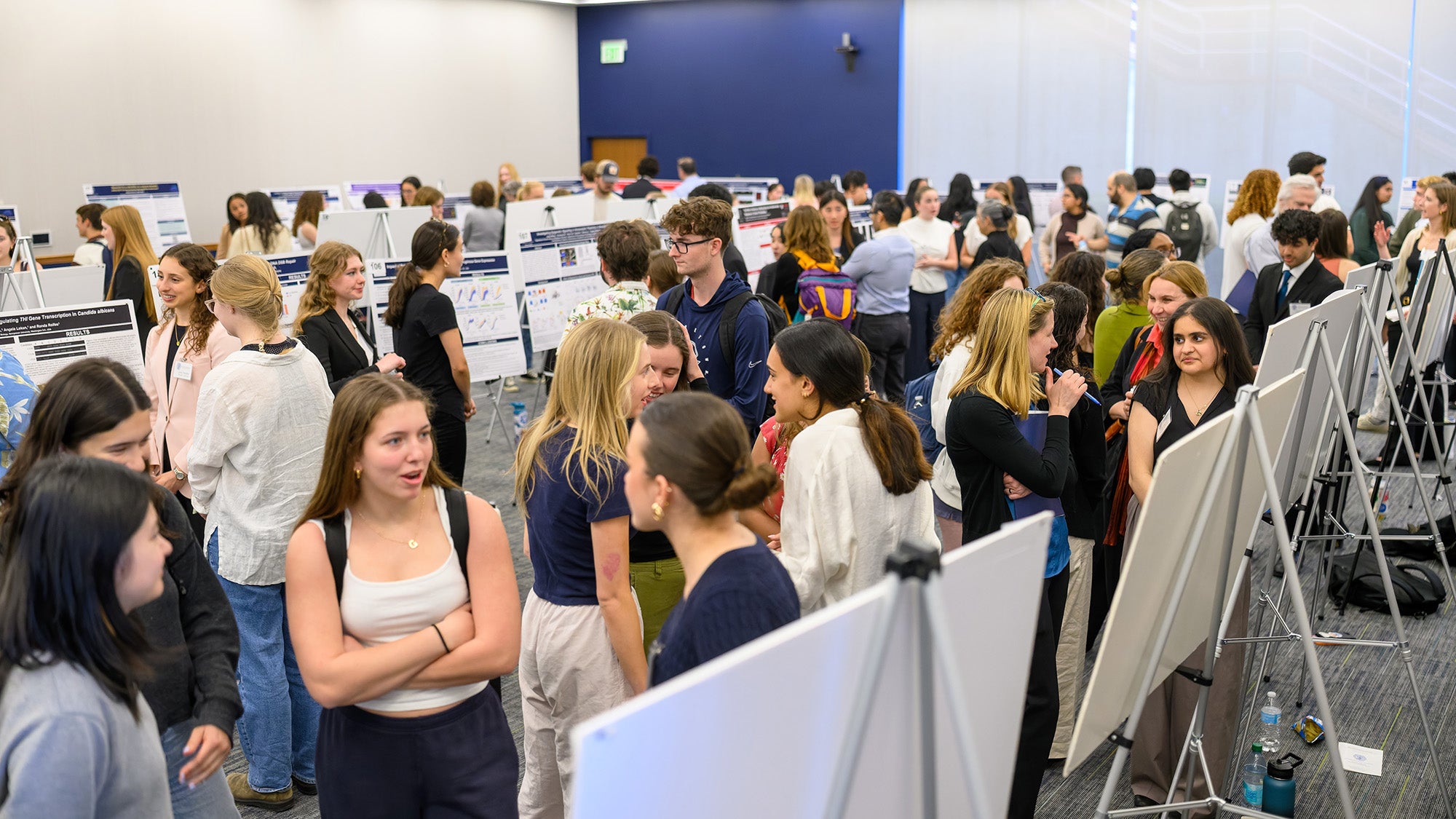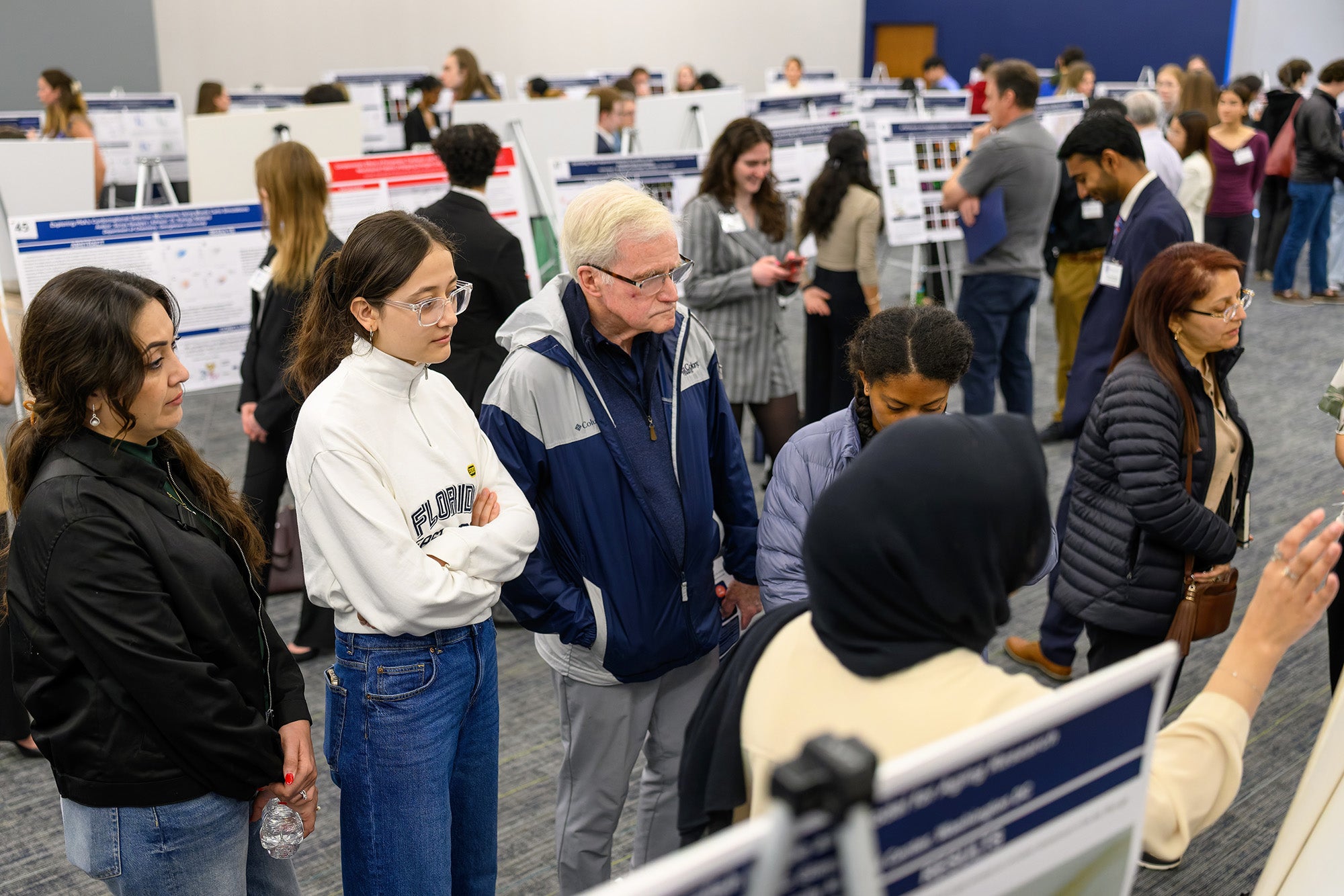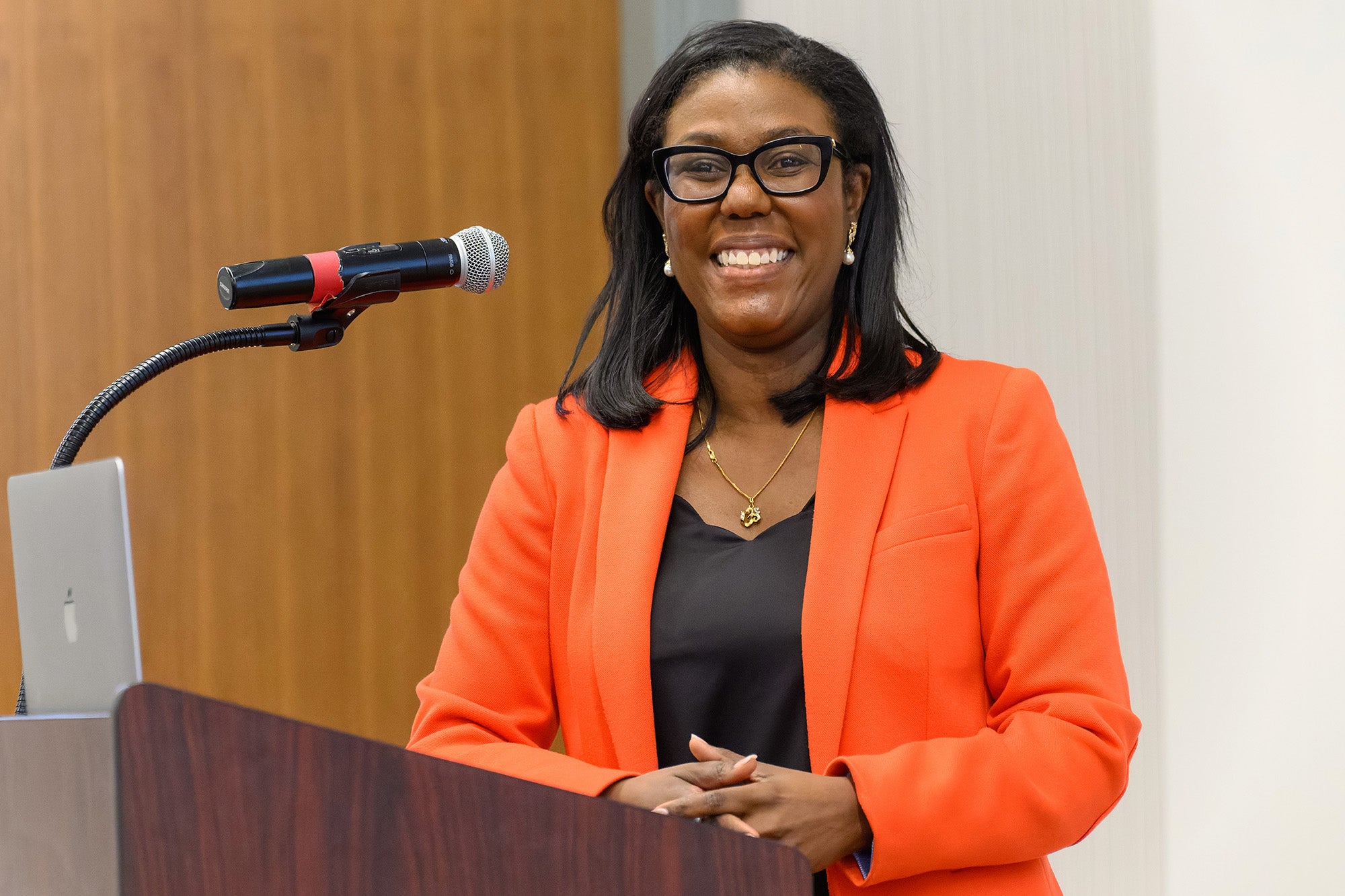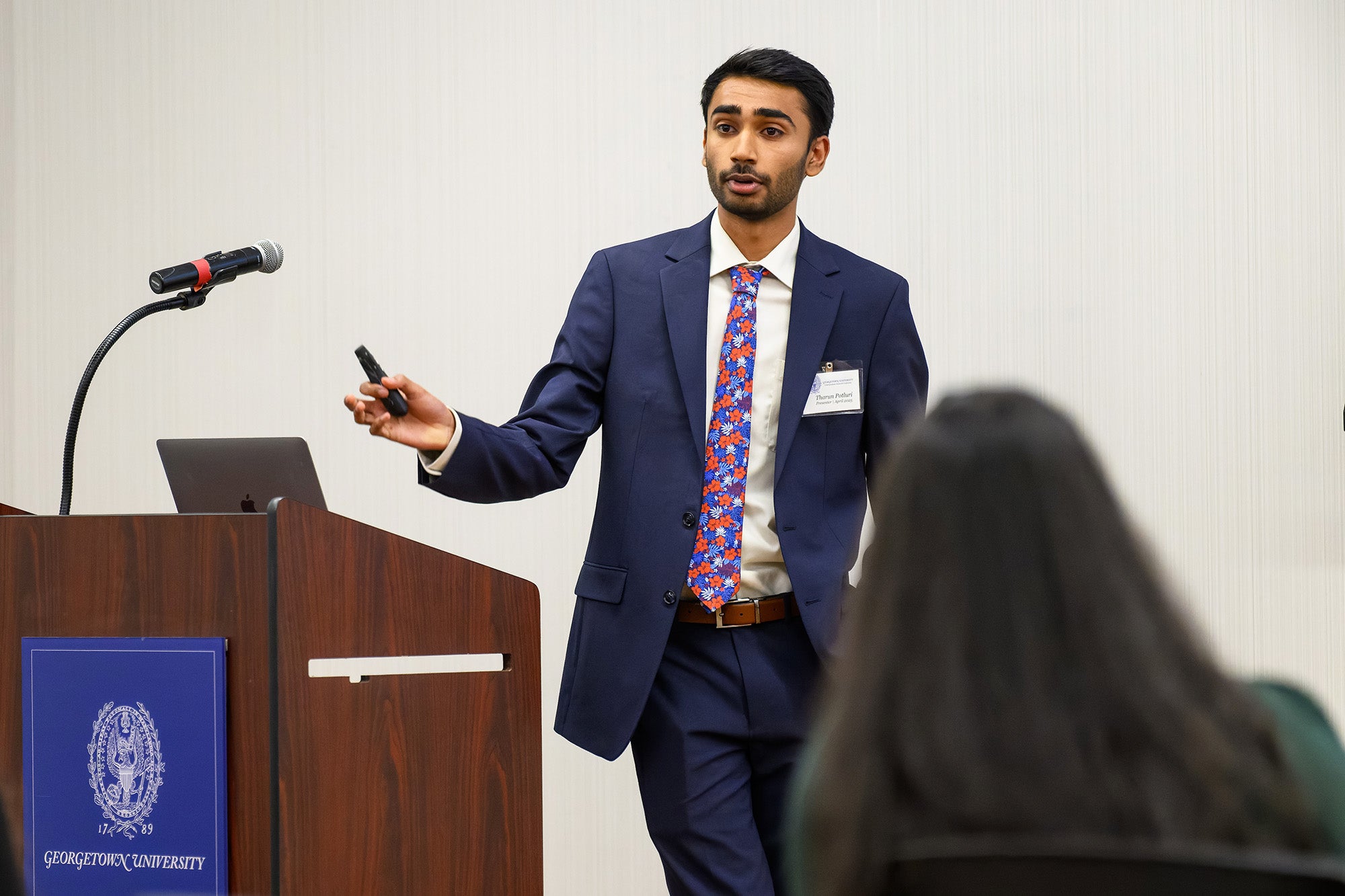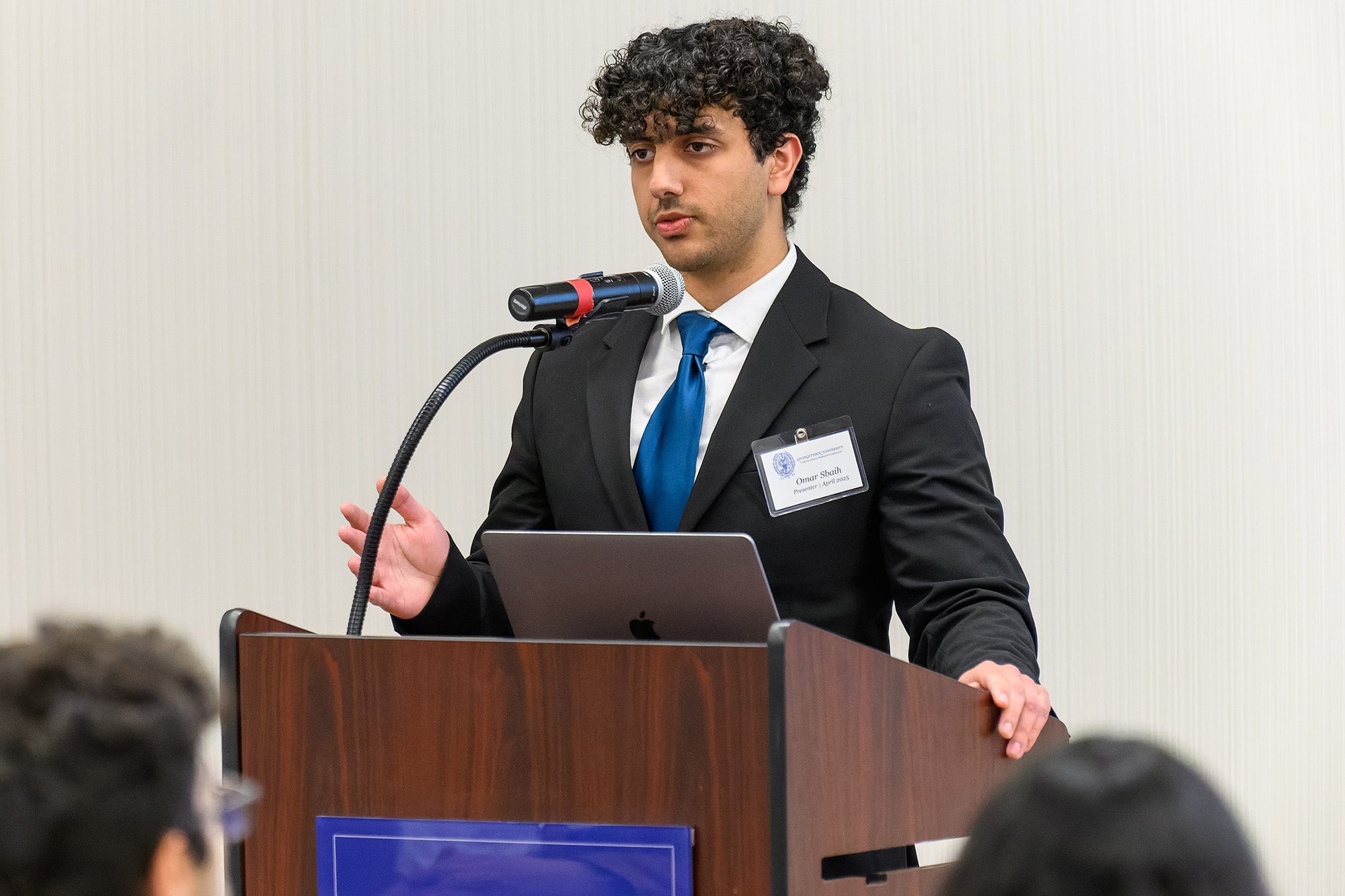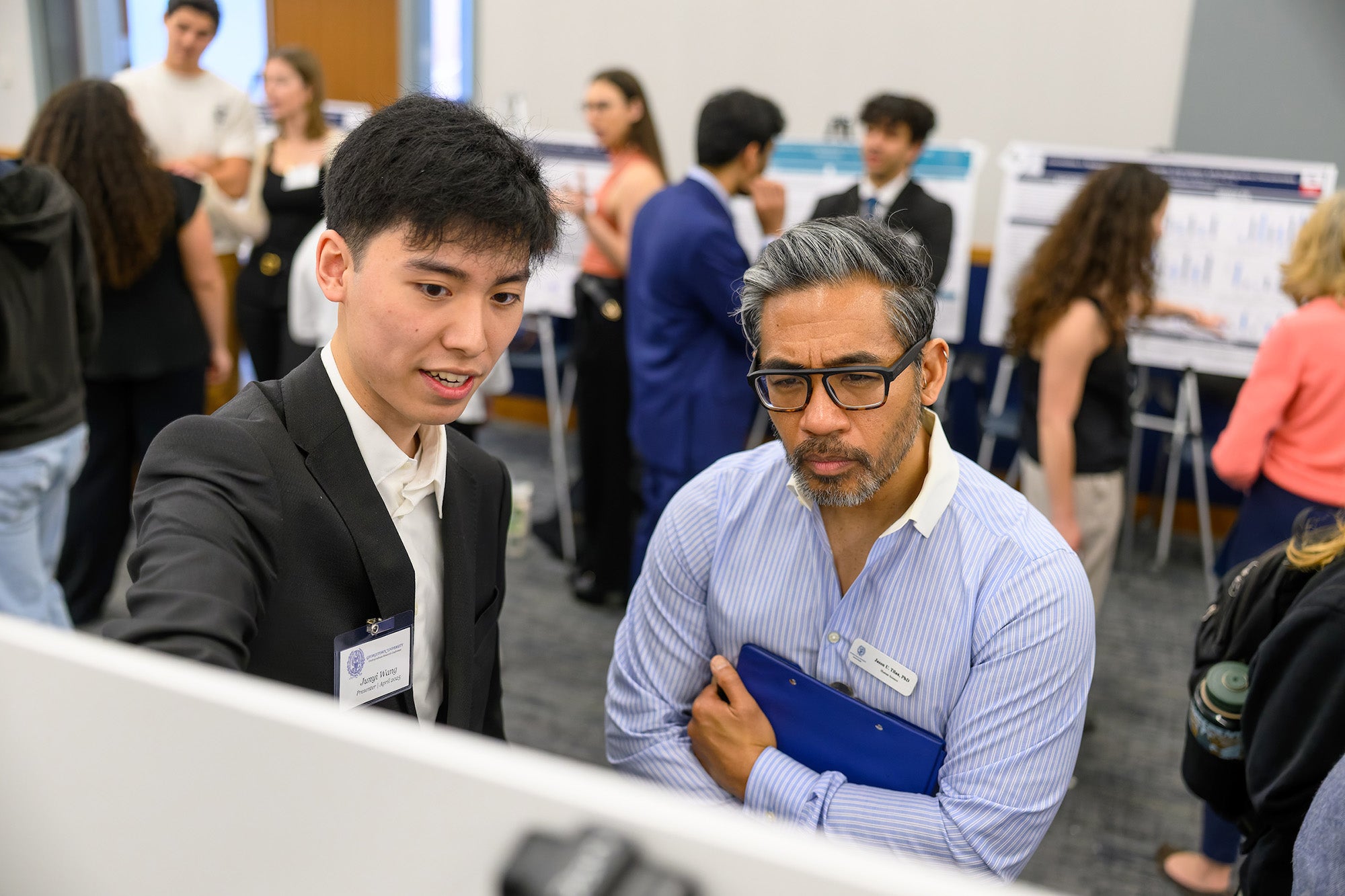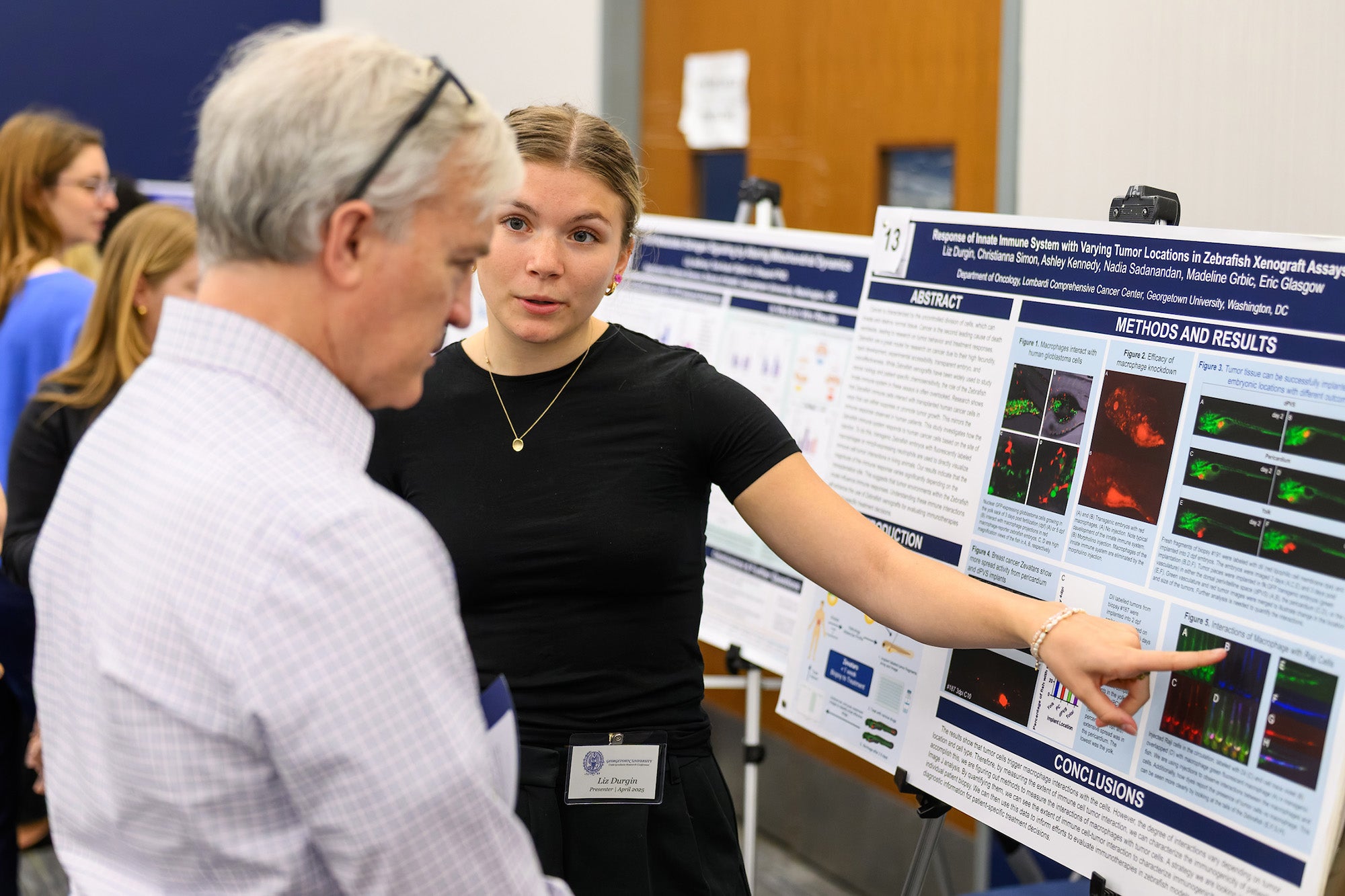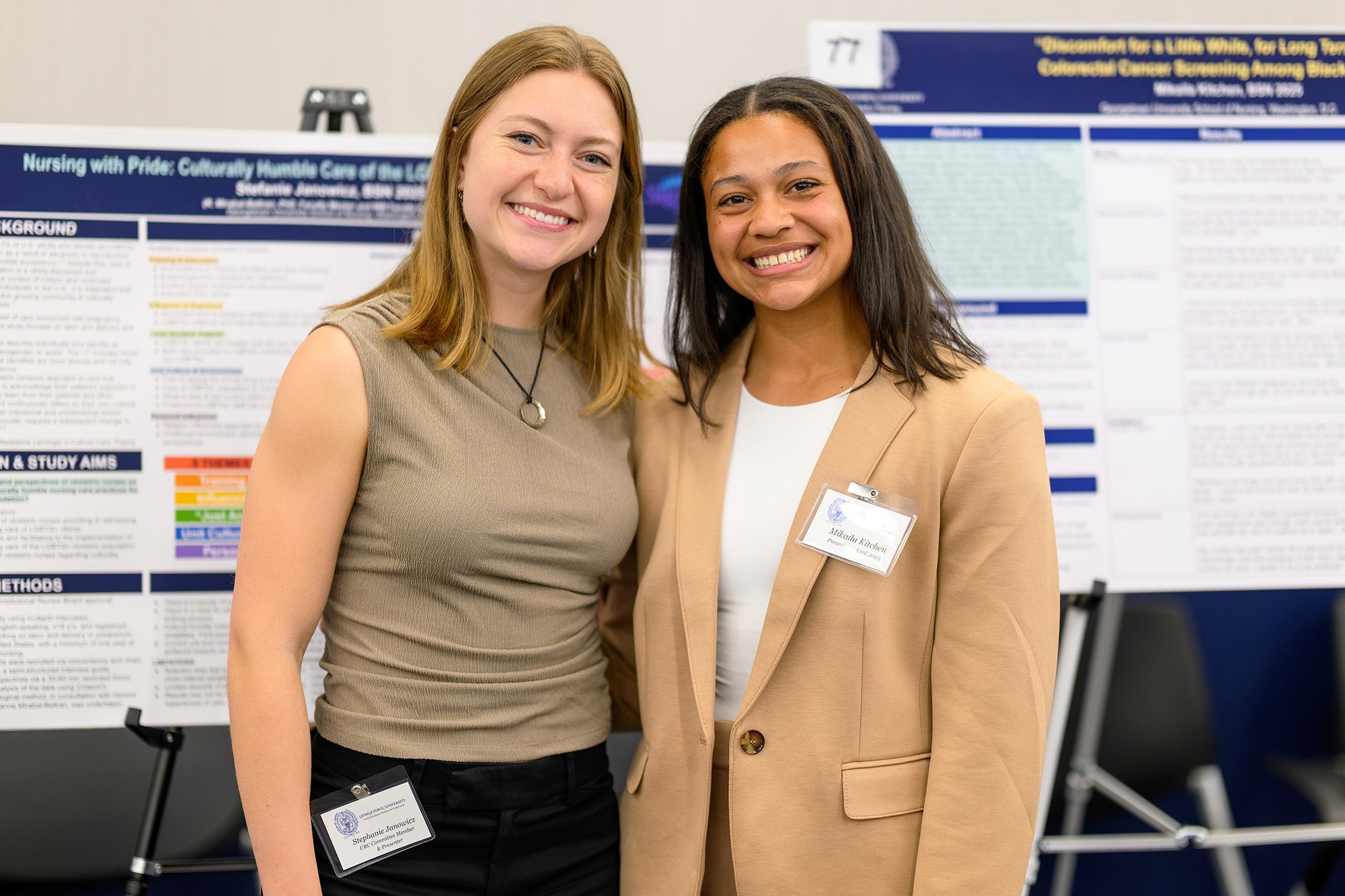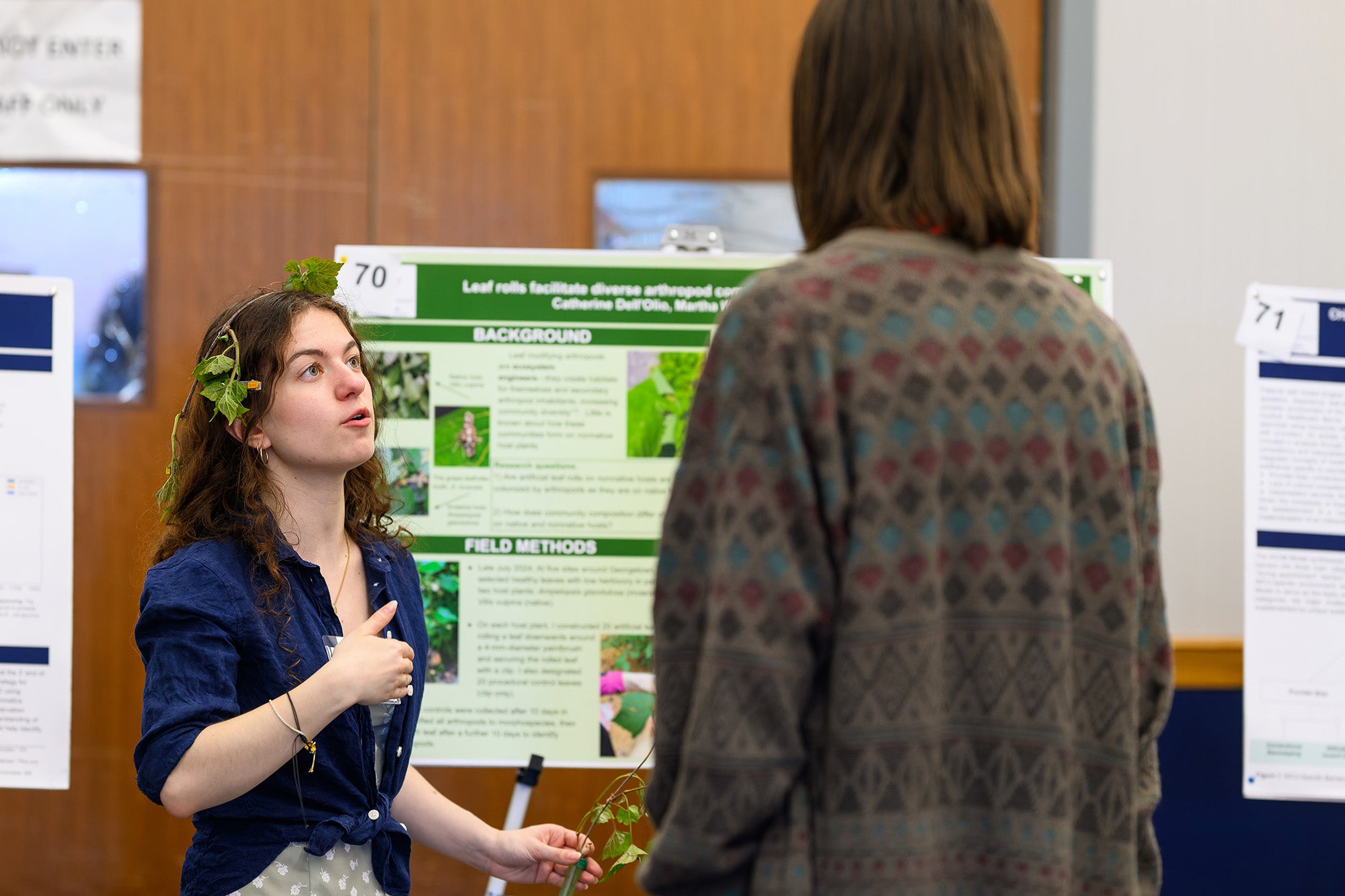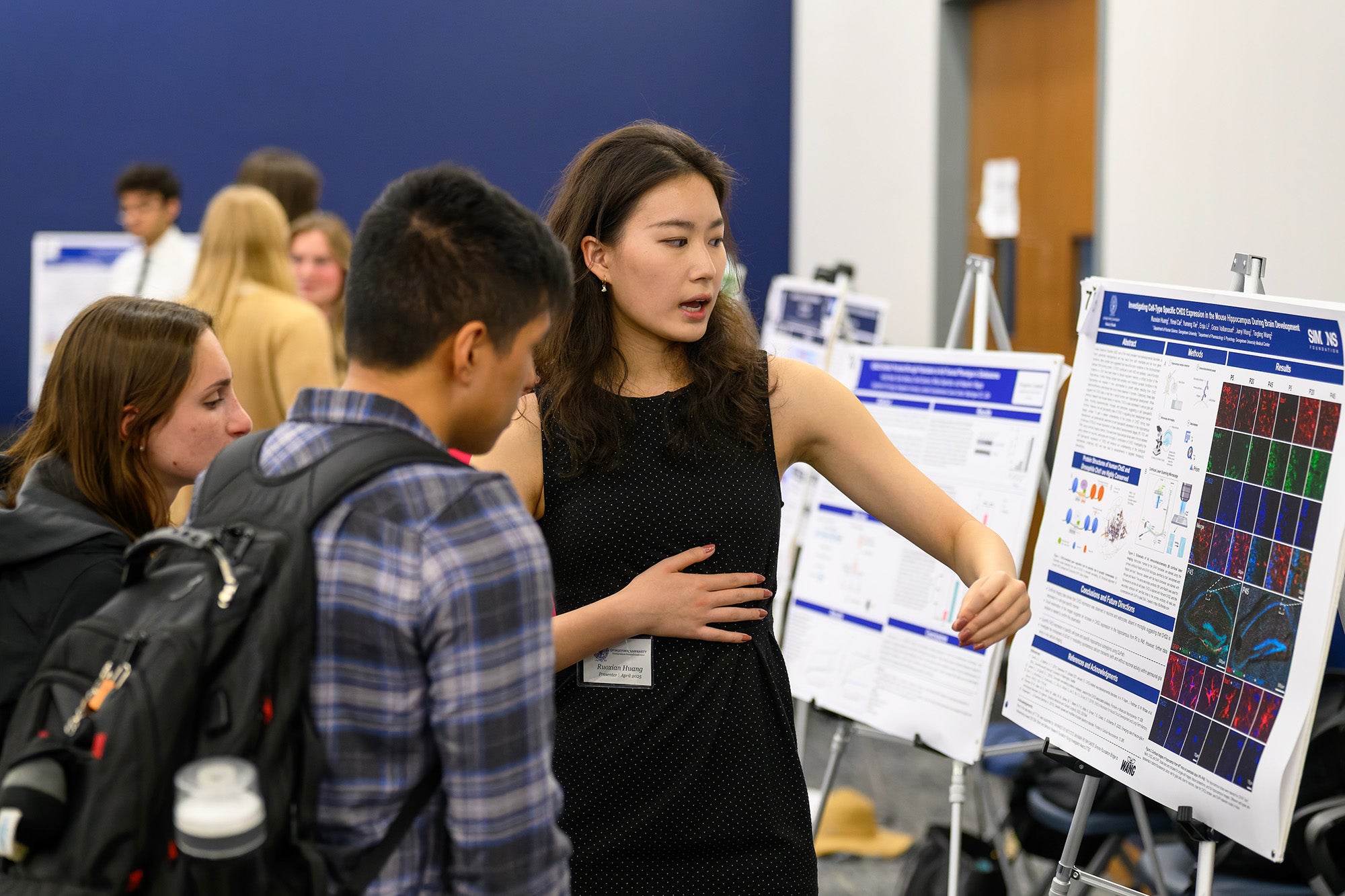Students Find a Community of Researchers at Annual Undergraduate Research Conference
(April 25, 2025) — A record 109 Georgetown students from diverse majors such as biology, nursing, chemistry, psychology and human science presented their work at this year’s Undergraduate Research Conference (URC). The School of Health organized the daylong research poster exhibition, which took place April 15 in the Healey Family Student Center.
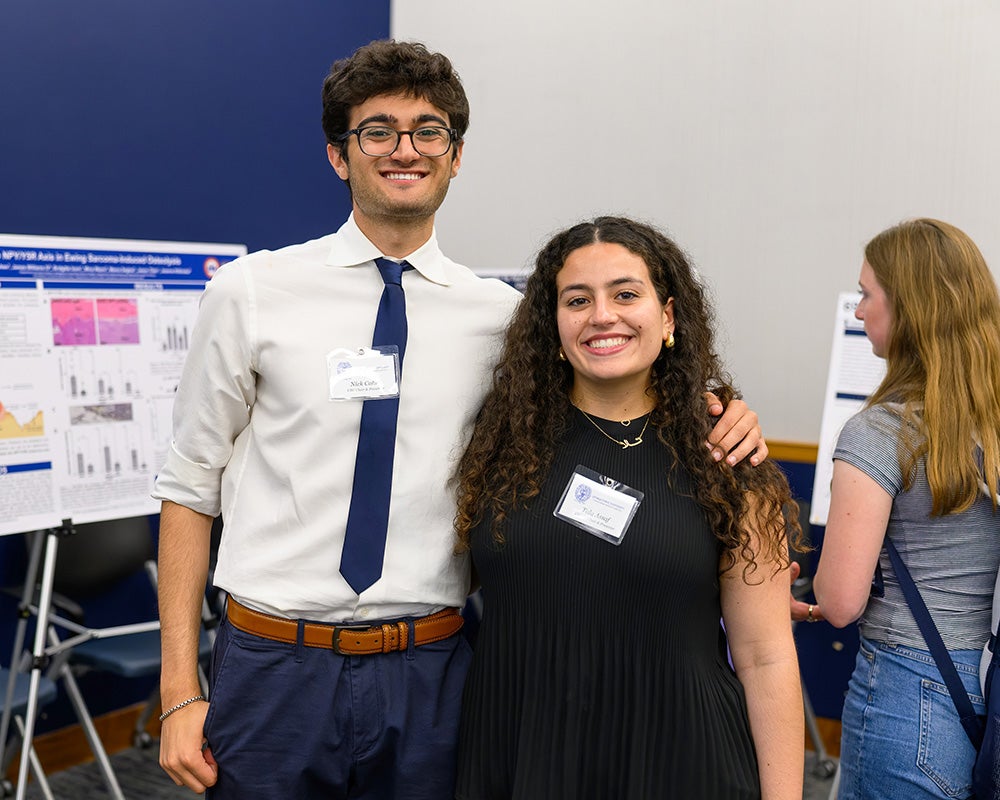
Co-chairs Nick Cohen (H’25) and Tala Assaf (H’26) helped organize this year’s conference.
“This conference showcases the work of our undergraduate researchers, focusing on science and health,” said Jan LaRocque, PhD, associate professor of human science at the School of Health and faculty co-advisor for the annual conference. “The student planning committee, in particular our chair and co-chair, have worked tirelessly to make this a successful event.”
“The conference is a unique opportunity and a really great platform for Georgetown undergraduates to present their research,” said Nick Cohen (H’25), who, along with Tala Assaf (H’26) helped organize the annual event as student co-chairs. “Students from all different types of majors engaging with health-related research presented their work that may be in early stages, may not have perfect results or be ready for publication, but still showcases the meaningful work they have been doing.”
The student co-chairs also selected the keynote speaker for the event: Paule V. Joseph, PhD, MBA, MS, chief of the Sensory Science and Metabolism Section at the Division of Clinical and Biological Research and co-director of the NIH National Smell and Taste Center at the National Institute of Deafness and Communication Disorders. Her presentation was titled “The Science of Taste and Smell: How Sensory Perception Impacts Health Outcomes and Well-being.”
Wide Range of Research
Students from across Georgetown, including the School of Health, School of Nursing and the College of Arts and Sciences, submit their work to be presented at the conference. Every class from first year to fourth year presented.
“There’s such a wide range of research on display, from public health research involving the prevalence of disease to more social science research examining the mental health of students, to nursing students considering different approaches to care for patient populations,” said Assaf.
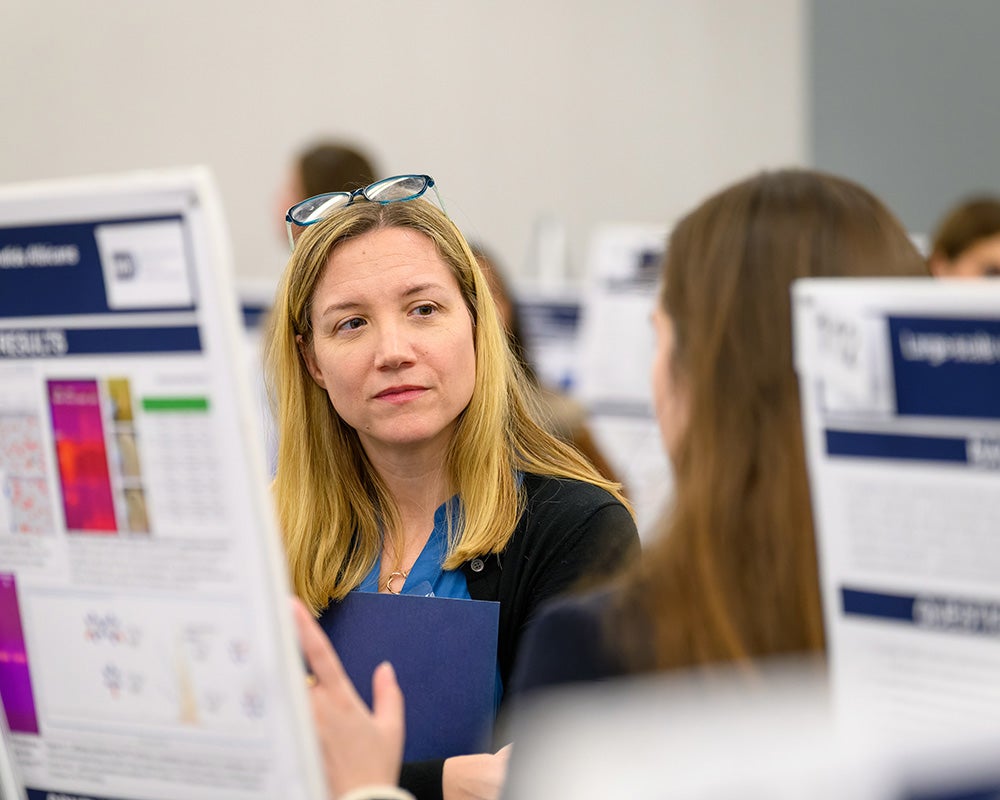
Jan LaRocque, PhD, associate professor in the School of Health and faculty co-advisor for the conference, listened to a student explain her poster.
“Student presenters have worked in labs with faculty from the college and taken part in clinical research with doctors at MedStar [Health],” said Cohen.
Having opportunities to participate in research and present that research in a conference setting are valuable experiences for undergraduate students, Assaf and Cohen said.
“It’s such an important skill to practice to learn how to translate complex research into something that is digestible to a general audience,” said Assaf.
“Students are also asked questions from faculty and fellow students, who are really engaged with their work during the poster sessions and oral presentations, which provides a unique opportunity to explain our research, an opportunity most undergraduates don’t have but we’re fortunate to have at Georgetown,” Assaf added.
Thanking Mentors
Assaf and Cohen, like many of the participants in this year’s conference, are grateful for the involvement of Georgetown faculty in providing research opportunities for students.
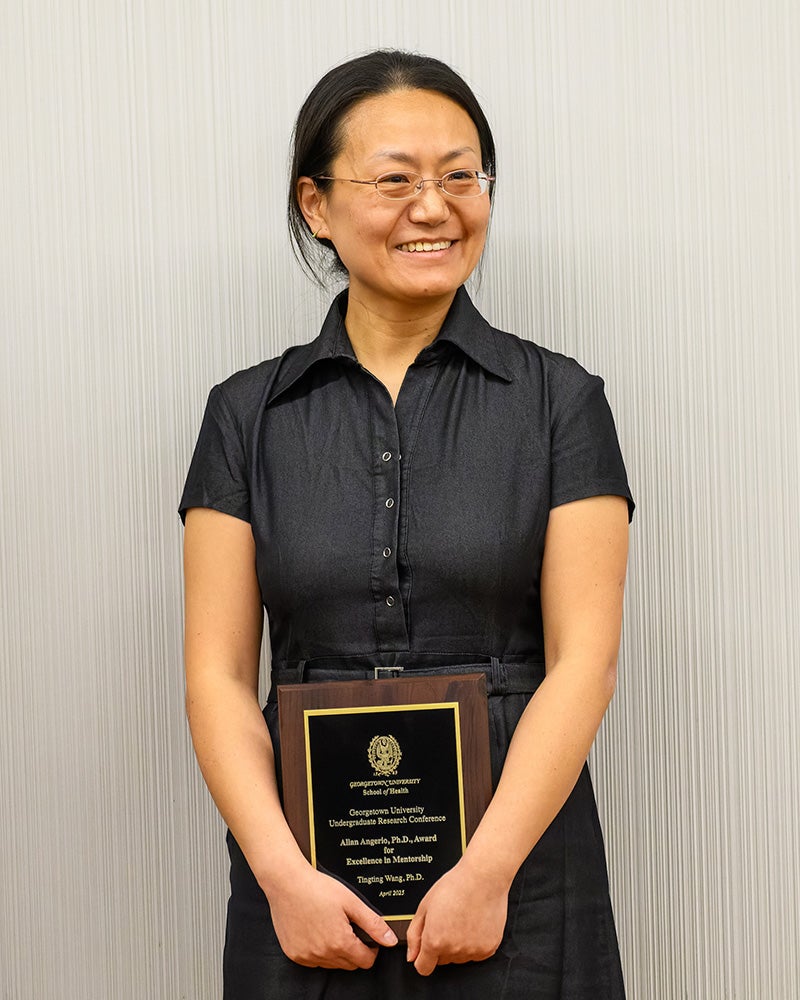
Tingting Wang, PhD, received this year’s Allan Angerio Award in Mentorship.
“We recognize it is not always an easy task for faculty to work with undergraduates,” said Assaf. “We have so much to learn, we make mistakes, we may drop things on the lab floor, so we are just really grateful for the faculty who work with undergraduates on original research.”
Students demonstrate their appreciation for the faculty by naming a faculty member as the annual recipient of the Allan Angerio Award in Mentorship. This year’s awardee, Tingting Wang, PhD, assistant professor, Department of Pharmacology and Physiology in the School of Medicine, mentored over 20 undergraduate students.
“The students who nominated her wrote these really heartfelt essays about how much they loved her as a mentor and how she was like a mother figure to them in helping them navigate not just their research but their personal lives,” said Assaf.
A Community of Researchers
The conference fosters a sense of community among undergraduate researchers and faculty, the student co-chairs said.
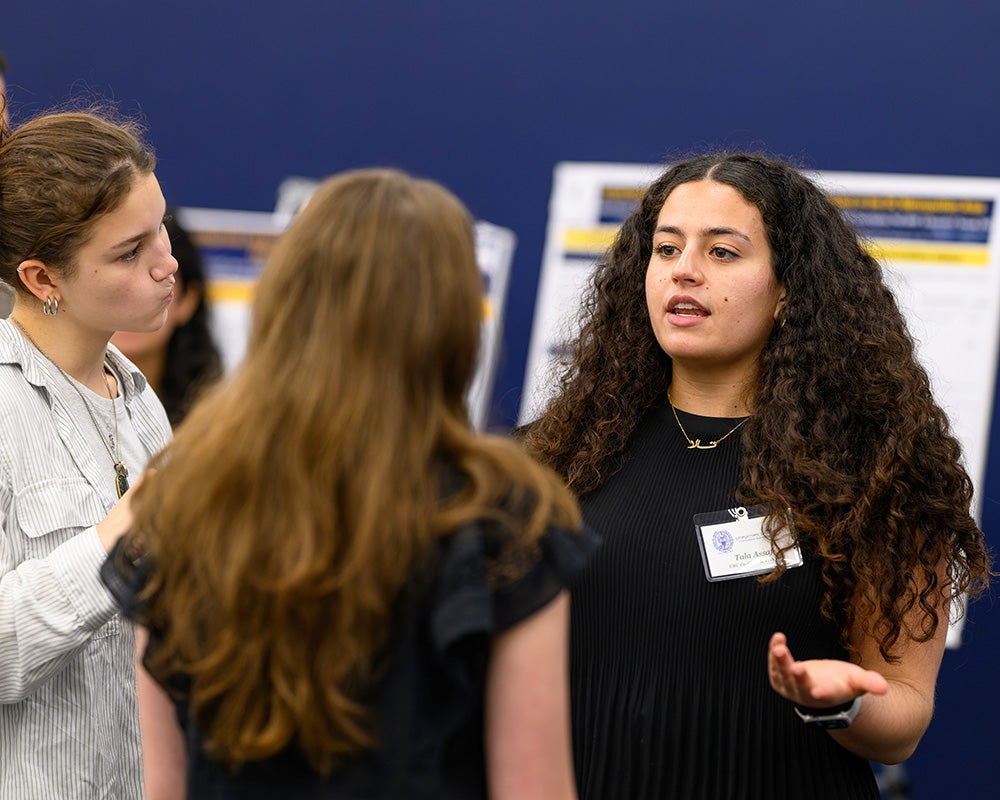
In addition to helping organize the conference, Assaf presented her research there.
“I presented my research for the first time yesterday, and it was so nice to be part of this community where everyone really cares and is walking around interested in each other’s work and asking questions,” said Assaf. “The conference really is a culmination of your work. It’s not scary, but celebratory.”
Assaf and Cohen addressed the hesitancy some students may feel in presenting their research at such a large event.
“Even if your results are preliminary or you’re an underclassmen, I would still encourage students to present their work to gain the experience of talking about research,” said Assaf. “The URC is so valuable for the Georgetown community, because it provides a space for students to present their work before presenting at national conferences, where the environment may not be as supportive.”
“I really encourage every student who has health-related research, at any level, to participate,” said Cohen. “You never know what question you may be asked or what person you might meet in a room of researchers.”
Heather Wilpone-Welborn
GUMC Communications
End of carousel collection.

